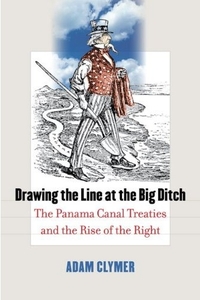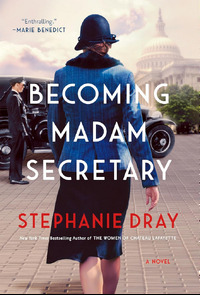

Purchase
Drawing the Line at the Big Ditch
Adam Clymer
The Panama Canal Treaties and the Rise of the Right
University Press of Kansas
March 2008
On Sale: March 18, 2008
286 pages
ISBN: 0700615822
EAN: 9780700615822
Hardcover
Add to Wish List
Non-Fiction | Non-Fiction Political
Considered one of America's engineering marvels, the Panama
Canal sparked intense debates in the 1970s over the decision
to turn it back over to Panama. In this remarkable and
revealing tale, noted journalist Adam Clymer shows how the
decision to give up this revered monument of the "American
century" stirred emotions already rubbed raw by the loss of
the Vietnam War and shaped American politics for years.
Jimmy Carter made the Canal his first foreign policy
priority and won the battle to ratify the Panama Canal
treaties. But, Clymer reveals, the larger war was lost. The
issue gave Ronald Reagan a slogan that kept his 1976
candidacy alive and positioned him to win in 1980, helped
elect conservative senators who made a Republican majority,
and fueled the overall growth of conservatism.
In telling the story of America's reconsideration of
the 1903 treaty that gave it control of the Canal "in
perpetuity," Clymer focuses on the perspectives of six key
players: Presidents Gerald Ford, Jimmy Carter, and Ronald
Reagan, Senate Minority Leader Howard Baker, political
candidate Gordon Humphrey, and Terry Dolan of the National
Conservative Political Action Committee. His narrative
illuminates many aspects of American politics during the
Ford and Carter years--especially regarding Senate
elections--that have been largely overlooked. And his
chronicling of the emergence of political action committees
on the right reveals their often-awkward relationship with
the GOP and the uneasy alliances that helped the Republicans
win control of the Senate in 1980. Clymer
explores how the uproar over the Canal episode foreshadowed
perennial partisan attacks over intense, emotional issues
from abortion to gun control to same-sex marriage. He also
shows that people who hated the idea of giving up the canal
gave birth to the NCPAC approach of beating up on an
incumbent long before an election, often assisted by
independent spending and outside advertising.
As Clymer argues, "The Panama Canal no longer divides
Panama. But the fissures it opened 30 years ago have
widened; they divide the United States." His even-handed
account offers new insight into the "Reagan Revolution" and
highlights an overlooked turning point in American political
history.
Comments
No comments posted.
Registered users may leave comments.
Log in or register now!
| 


 © 2003-2025 off-the-edge.net
all rights reserved Privacy Policy
© 2003-2025 off-the-edge.net
all rights reserved Privacy Policy